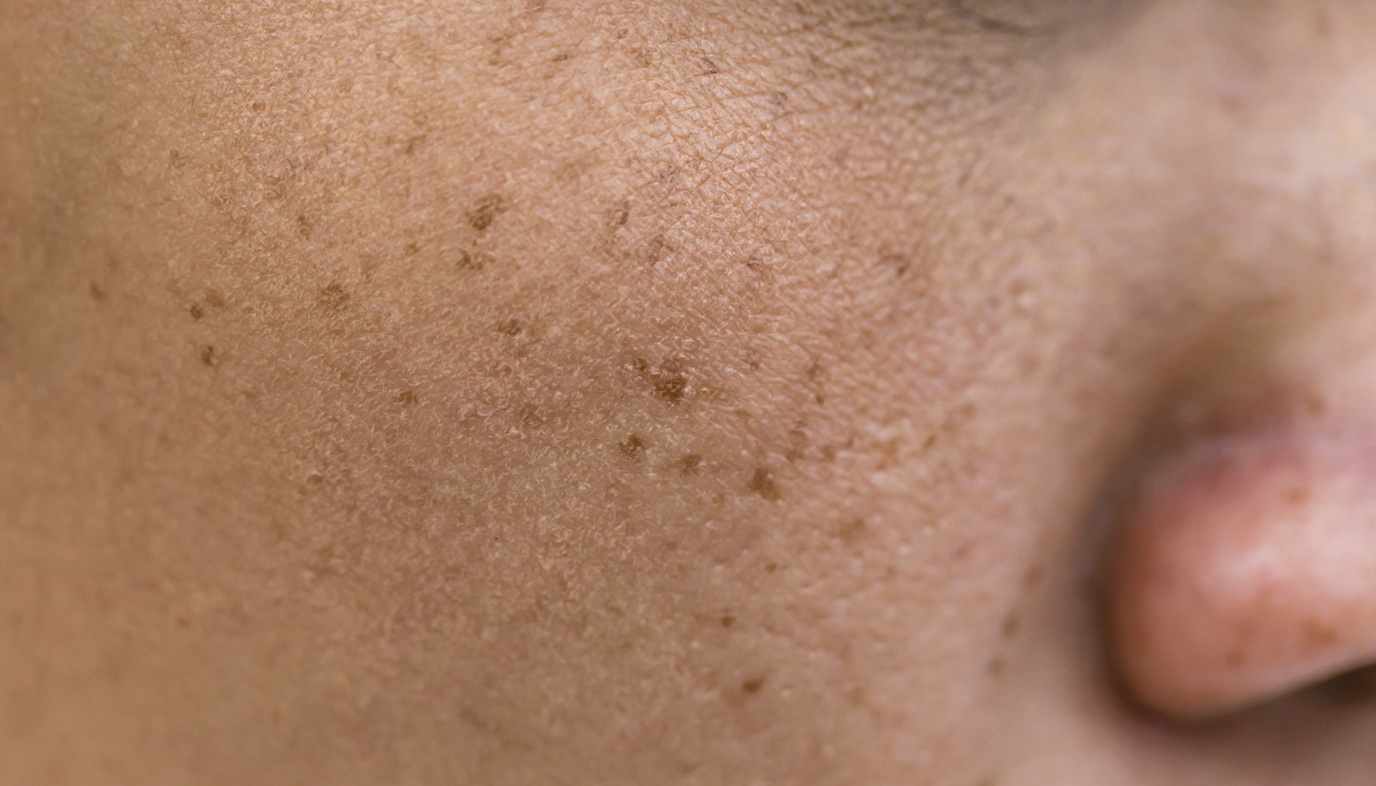
You're thrilled that you're expecting, but are you noticing changes in your skin tone that you weren't expecting? Perhaps you're not pregnant and you're taking birth control pills, but there are dark patches on your skin. Maybe you don't fit either of these scenarios, yet your face has brown patches on it. In any of these cases, you may have melasma which is also known as the "mask of pregnancy."
Do You Have These Signs?
How do you know if you have melasma? Here's a list of symptoms:
Brown patches on your face, especially after sun exposure
Pigmentation changes above the lip, on cheeks, nose, and forehead
Dark, patchy sections of your skin that don't itch or hurt
In some (rare) cases, the dark-colored areas appear on forearms
What is Melasma and What Causes It?
Melasma is a skin disorder that shows up during pregnancy or in women taking oral contraceptives. But it can happen to anyone, anytime. It is also found in both women and men of Native American ancestry and in both sexes of German and Russian descent. The disorder occurs often in sunny environments and is prevalent among women with darker skin tones.
For a definitive diagnosis, check with your dermatologist. The Merck Manual Home Health Handbook defines it as follows: "Melasma causes dark brown patches of pigmentation to appear on sun-exposed areas, usually the face."
Sometimes a brownish streak may appear in the mid-abdominal area of pregnant women. That's because the placenta creates a hormone, which stimulates the production of cells (called melanocytes). These cells produce brown coloration in certain areas of the skin.
What You Can Do
If you keep your skin protected from the sun, melasma usually goes away. It also fades after you give birth or when you stop taking oral birth-control medication.
Here are some more things you can do:
Apply sunscreen on the dark patches of your skin
Use skin-bleaching creams or lotions (that have retinoic acid and hydroquinone)
Talk with your doctor about stopping oral contraceptives (and choosing an alternative form of birth control if you're not planning a pregnancy).
 How to Manage Melasma
How to Manage Melasma
While melasma may go away in time, some people have it for a few years or longer. If you want to continue taking oral contraceptives, here are some other options:
Medicine - Hydroquinone is a common initial treatment. It is a topical medication (applied to the skin), which can lighten the color patches. It comes as a cream, liquid, lotion, or gel. Some forms of it are available over the counter, but will not have the concentration your doctor can prescribe.
Corticosteroids or Tretinoin - Your dermatologist may prescribe an additional medication cream.
Azelaic Acid or Kojic Acid - These are other prescriptions that can help lighten the dark patches.
Chemical Peel (e.g., glycolic acid) or Microdermabrasion - Your doctor may recommend these if the topical treatments are not successful.
Be sure to ask your doctor about potential side effects of any of these treatments.
Other Treatments for Melasma
Celebrities like Brooke Burke have spoken publicly about dealing with melasma. She tried chemical peels-which have produced some positive results for her. Specifically, she has had good results with Dr. Abdala Kalil's "ViPeel"-a customized peel. It is made of a combination of strong acids at low concentration. It contains Phenol, TCA (trichloroacetic acid), salicylic acid, vitamin C, retinoic acid, hydroquinone, and cortisone.
She has also experimented with laser treatments, prescription medications, and an SPF 55 sunscreen (CellCeuticals). Brooke uses cover-ups, such as Concealing Mineral Foundation, Illum Nare, Redpoint Noc-Out Cover-up Compact, and Sheer Cover Mineral Powder Foundation.
So, to keep this potential skin disorder in check while expecting (or not), you're better off staying out of the sun. If you do get melasma, get treatment and cover up what you can!

